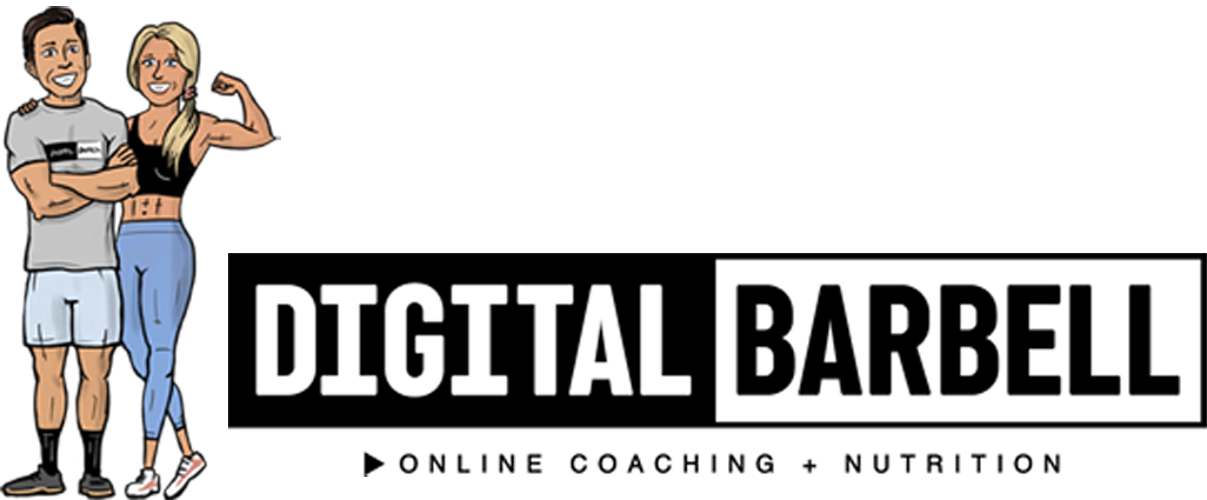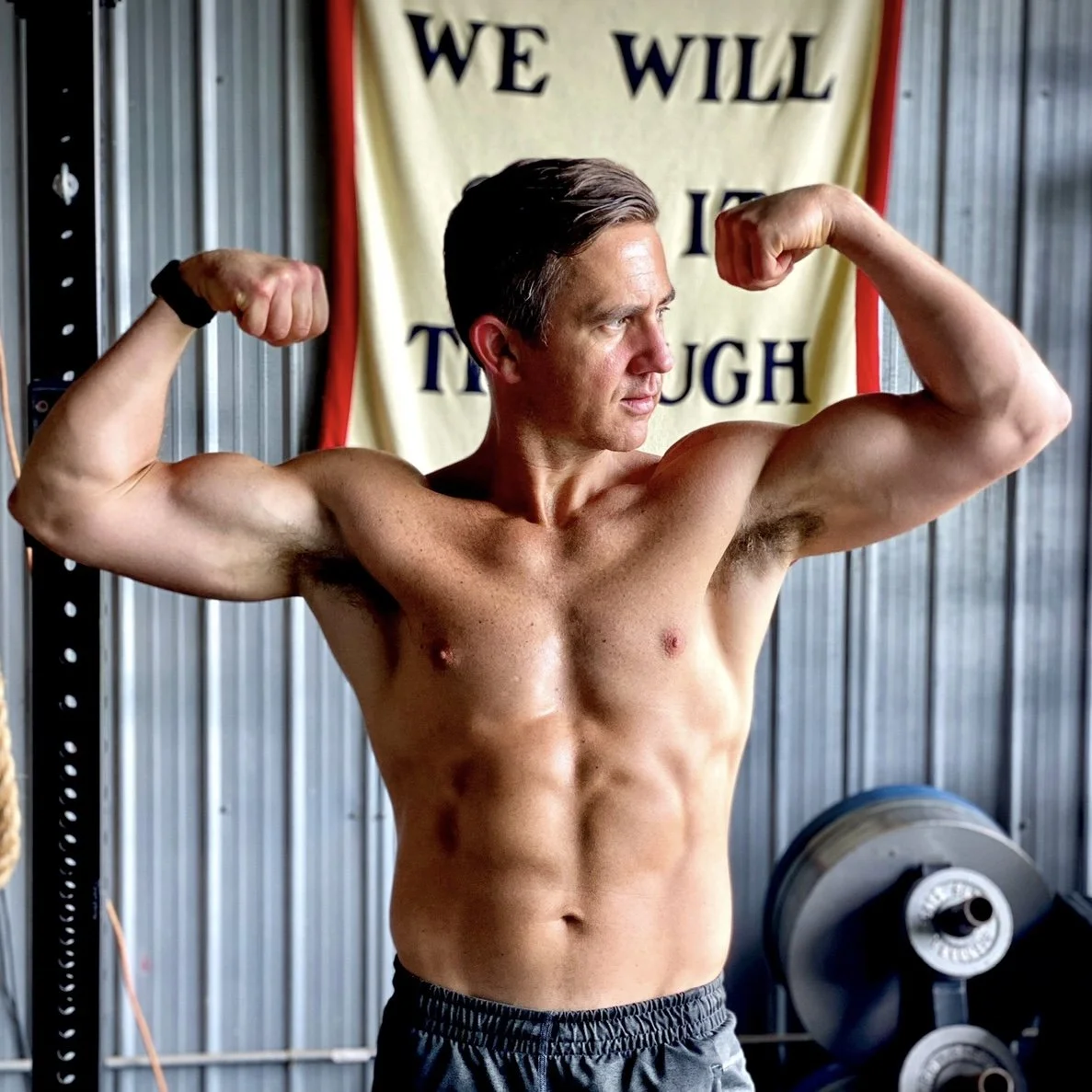What Should You Eat Before and After You Work Out?
Pre & Post Workout Nutrition
What You Need To Know
IF YOU DON’T DRINK A PROTEIN SHAKE WITHIN 5 MINUTES OF WORKING OUT, WILL YOU LOSE MUSCLE?
Let’s cut to the chase—this idea is a myth. But, the truth about pre and post-workout nutrition can still make a difference in your results.
In this article, we’ll unpack what science really says about fueling your body around workouts. We’ll cover what you should eat, when to eat it, and how to make it all work for your lifestyle.
Spoiler alert: Timing matters, but it’s not as critical as consistency, effort, and eating the right foods overall. If you’re already hitting the basics, pre and post-workout nutrition can help you optimize your results.
Hey, We’re Jonathan & Blakley, the owners of DIgital Barbell. We help hard-working people get strong, fit, and look like they work out without getting bored, hurt, or wondering what to do.
Why Your Nutrition Matters
When you exercise, especially with strength training, your muscles go through a cycle of breaking down and rebuilding. This breakdown phase is called the catabolic phase, while rebuilding happens in the anabolic phase.
To gain muscle and recover properly, you want to spend more time in the anabolic phase than the catabolic phase. Nutrition plays a major role in shifting your body into that rebuilding mode.
Key players:
Protein provides amino acids that repair muscle. Animal-based proteins like eggs, meat, and dairy are rich in essential amino acids like leucine, isoleucine, and valine. They’re called the “Branch Chain Amino Acids” or BCAA’s and they’re critical for muscle repair and growth.
Carbs fuel your workouts (especially weight lifting) and replenish your reserve energy stores (glycogen) after you’re done.
Fat slows digestion, so it’s best kept to a minimum before workouts.
What to Eat Before Your Workout
How Much Protein To Eat Before Exercise
If you work out in the morning on an empty stomach, aim to eat 30 grams of protein beforehand. A shake made with whey protein, scrambled eggs, non-fat dairy, or lean meat are great options.
If you work out in the afternoon or night, things change. If you’ve had a protein-rich meal within a few hours of training, there’s no urgent need for additional protein right before your workout. The process of muscle recovery called “Muscle Protein Synthesis” lasts for several hours after you eat a high-protein meal.
💡If the idea of eating a meal before you work out doesn’t sit well with you, try one of our 10 Delicious, Protein-Packed Smoothie recipes.
How Many Carbohydrates (carbs) To Eat Before Exercise
Carbs are your muscles’ fuel. Eating 30–40 grams of easily digestible carbs 30-60 minutes before your workout can boost performance. If you’re trying to get stronger or improve your body composition, carbs are your friend. Focus on easy to digest, rapidly absorbable carbohydrates.
Examples:
A banana
Rice cakes
A carb supplement like highly branched cyclic dextrin
Juice
Try to avoid high-fiber carb sources like apples or beans if they make you feel too full or sluggish.
How Much Fat To Eat Before Exercise
Fat slows digestion, making carbs less available before and after your workout. Keep dietary fat minimal in your pre-workout meals. Foods like avocado toast or peanut butter snacks are better saved for another time.
What to Eat After Your Workout
After your workout, your body needs nutrients to shift out of the catabolic state and into the anabolic state. Here’s how to do it right:
How Much Protein To Eat After Exercise
While you don’t need to guzzle a shake immediately after your workout, aim to eat 30–40 grams of protein within a few hours. This keeps muscle repair and growth on track.
Examples:
Grilled chicken breast
Greek yogurt with whey protein mixed in
A balanced meal with lean protein
How Many Carbohydrates To Eat After Exercise
Carbs help replenish your glycogen stores so you're ready for your next workout. They also pair well with protein to enhance muscle protein synthesis. If your workout was intense, aim for 30–50 grams of carbs post-exercise.
Examples:
A cup of rice or quinoa
Sweet potatoes
A couple of pieces of fruit
If you’re scratching your head wondering how many calories and how many of each macronutrient is right for you, check out our free calculator below.
Key Takeaways
To sum it up:
Consistency matters most. Show up for your workouts, eat whole foods, and recover with 7-8 hours of quality sleep.
Pre-workout: Fuel your session with a protein source and easily digestible carbs. Keep fat low.
Post-workout: Don’t skip your next meal. Prioritize protein and moderate carbs to support recovery.
Keep it simple. The best nutrition plan is the one you can stick to.
What’s Your Take on Pre- and Post-Workout Nutrition?
Send us a message on Instagram and let us know.
And before you go… If you like this kind of content, you’ll love our podcast. It’s on YouTube, Spotify, and Apple.
Thanks for reading!
Jonathan & Blakley




